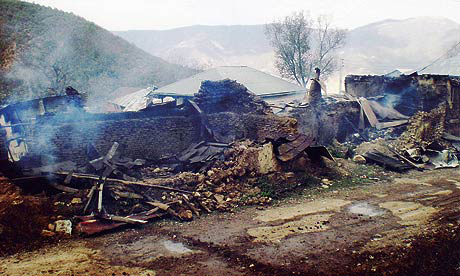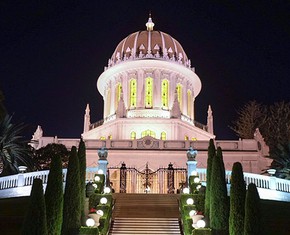The views expressed in our content reflect individual perspectives and do not represent the authoritative views of the Baha'i Faith.
O People of Persia! Open your eyes! Pay heed! Release yourselves from this blind following of the bigots, this senseless imitation which is the principal reason why men fall away into paths of ignorance and degradation. See the true state of things. Rise up; seize hold of such means as will bring you life and happiness and greatness and glory among all the nations of the world. – Abdu’l-Baha, The Secret of Divine Civilization, p. 103.
Iran’s top-down economic strangulation campaign against Baha’is began in the 1980s, but became much more pronounced in the 1990s. As the government and its fundamentalist clerics gained control over ever larger parts of the country’s economy, they began to use their power to exert pressure on private businesses to expel their Baha’i employees.
Sometimes local government officials or mullahs applied the pressure, threatening private businesses with retributive action if they didn’t comply. At other times, the Baha’i firings happened as a result of the official assignment of fundamentalist Muslim clerics to factories and other businesses, placed there to ensure conformity with the government’s vision of Islamic norms. Those clerics often encouraged the Muslim workers to harass and ostracize their Baha’i co-workers.
Initially the actions taken against the Baha’is involved the ruling regime’s sanctioning of simple acts of religious prejudice, exactly as the Nazis encouraged Germans to shun and stigmatize the Jews. In just one of many examples, in January of 1982 a cleric instigated the Muslim workers in the Elyaf factory to demand that the Baha’i employees work in a segregated area–and be compelled to bring their own plates to the workers’ cafeteria so they wouldn’t “contaminate the food” of the Muslim workers. Also, even as early as 1982, news reports reveal that some Baha’is working in factories in towns such as in Kirmanshah faced pressure either to recant their beliefs or face expulsion from work.
It appears that the Iranian regime issued the initial directive ordering all private companies to fire their Baha’i employees in December of 1981–but at that time the government did not pursue this directive systematically. Once the government had achieved its primary aim of expelling Baha’is from public service later in the 1980s, it began to focus more of its attention on private firms. During the subsequent period, the Ministry of Islamic Guidance increasingly interrogated private businesses about their workforce, and then compelled them to dismiss their Baha’i employees.
The Islamic Revolutionary Government of Iran issued repeated denials about these practices at the time, but mounting evidence shows that all of these measures taken against the Baha’is during the period of the Rafsanjani presidency (1989-1997) did not originate from just the random actions of over-zealous officials–they constituted part of a nationwide, carefully planned covert government campaign.
This evidence comes primarily from the previously-mentioned Golpaygani Memorandum, drawn up at a joint meeting of Ali Akbar Hashemi-Rafsanjani, then President of Iran, along with the Supreme Revolutionary Cultural Council, and forwarded to the Supreme Leader, Ayatollah Ali Khamenei, who appended his signed approval at the bottom of the document.
The document states that “The Government’s treatment of them [the Baha’is] shall be such that their progress and development shall be blocked” and that “Employment shall be refused to persons identifying themselves as Baha’is”–making it abundantly clear that the government’s policy of strangling the Baha’i community culturally and economically came directly from the top leadership of the country.
These actions blatantly violate international law, but they also break the basic laws of Islam itself: “Let none of you treat a brother in a way he himself would dislike to be treated.”
Iran’s president promised the world, in April of 2014, that the country’s ethnic and religious minorities “must feel justice.” That same month the head of Iran’s High Council for Human Rights said that the Baha’is “were entitled to the same rights as all Iranian citizens.”
But despite the deception and denials, Iran’s discrimination and persecution against the Baha’is continues. The most recent report on the issue from the United Nations says it clearly: “Baha’is remain barred from access to higher education and government employment; they also continue to experience governmental interference in private employment.”
Until the entire Iranian government, including its ruling ayatollahs, decides to reverse its genocidal anti-Baha’i policies, the hatred and the horror will go on.

















Comments
Sign in or create an account
Continue with Googleor